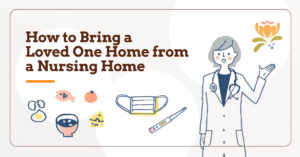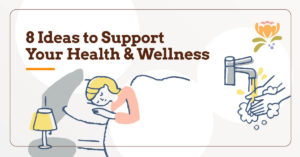
As experts on the topic of in-home senior care technologies, we often receive questions from adult children who are exploring options for an aging parent. In this two-part series, we share the most common questions about in-home technology solutions available to caregivers.
What is caregiving technology?
Caregiving technology is an all-encompassing term used to describe any device that helps to improve care, connectedness and safety of an older adult living at home. Most devices help manage medical conditions in a home environment or assist a senior in adapting their environment to meet their unique needs.
What is the goal of in-home technology?
In broad terms, the goal of in-home technology is to allow an older adult to age with choice. For most adults aging with choice means they want to stay in their own home for as long as possible. In-home technology can support independence and increase safety.
Will Medicare pay for senior care technology?
While Medicare does pay for many types of durable medical equipment, in most cases it will not pay for in-home technology. There are a few exceptions to this rule. If a patient lives in a part of the country deemed to be a Health Professional Shortage Area (HPSA) or in a county outside of a Metropolitan Statistical Area (MSA), Medicare will pay for telehealth services if these services “mimic normal face-to-face interactions between patients and their health care providers.” Most of our clients pay for in-home technology from private resources.
Does my family member have to be computer literate for us to use a remote monitoring technology solution?
No. In most cases, there will be very little your loved one is required to do. A remote monitoring technology like our BeClose Elderly Monitoring System utilizes small systems discretely placed throughout your loved ones home. It transmits information about your loved one’s activity throughout the day and allows you to monitor that activity from your mobile phone or computer.
Stop back next week when we will answer some of the more popular questions related to monitoring older adults with Alzheimer’s disease and those at high risk for falls.





